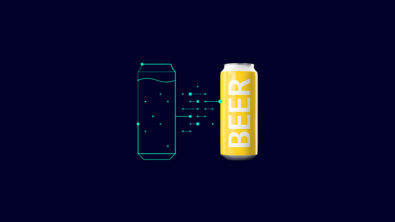New top decision-maker in logistics

What influence does the digital twin have on the supply chain
Supply chains are sensitive. They are vulnerable to strikes, weather disasters, pandemics. The larger the network of suppliers and production partners, the more influencing factors determine the performance of the supply quality. How can reliable decisions be made at all on the basis of this permanent volatility? How can supply chain managers reliably evaluate the effects of failures or deviations on subsequent events?
Anyone who makes decisions of great importance for the supply of his customers and the development of the company from the gut risks more than an upset stomach. At best, the gut evaluates the situation as it presents itself – on the basis of key data and empirical values, but not on the basis of dynamically developing parameters.
Entrepreneurial foresight is now supported by data. A picture that reflects the current operational status emerges from a mass of validated, project-related data. But what happens when the lines and contours of this picture shift, when colours and shapes change?
With the Digital Twin you can sketch exactly that. The IT tool is used to create a virtual image of the real logistics network down to the last detail, which relates the complex, interdependent things and conditions in logistics networks to one another.
Deficits can also be brought to light with the Digital Twin
In this phase of decision-making, logistics experts can playfully try out how different concepts and ideas affect practice before they are implemented in reality. They can simulate how events and changes – including unpredictable ones – affect the supply chain. This makes the Digital Twin a classic Decision Support System.
Even existing deficits can be brought to light with the Digital Twin. In projects for food companies, for example, we have been able to use Digital Twin to find out that a certain product group generates large volume flows but only generates a very small contribution margin. At the same time, we were able to show how costs and margins develop with changing volumes.
Is the customer important for me?
Those who consult the Digital Twin have no problem breaking down the total cost of their logistics to a single customer order in order to get a clear picture of elementary issues: Is this customer important for me? Do I still achieve a positive margin with the customer? Do I want to keep him supplied? What would I have to do to get a better deal at the end of the day? And how would individual measures and marketing campaigns affect business development with the customer?
But Decision Support goes much further. For example, the development of new services and products can be evaluated in advance. Existing product portfolios and ranges can also be examined from the perspective of whether and how they are profitable for the company.
The changing times in which we live make it clear: It will not become easier for anyone to act with foresight and make the right decisions. It’s good to have a top decision-maker like the Digital Twin at your side in this situation.


